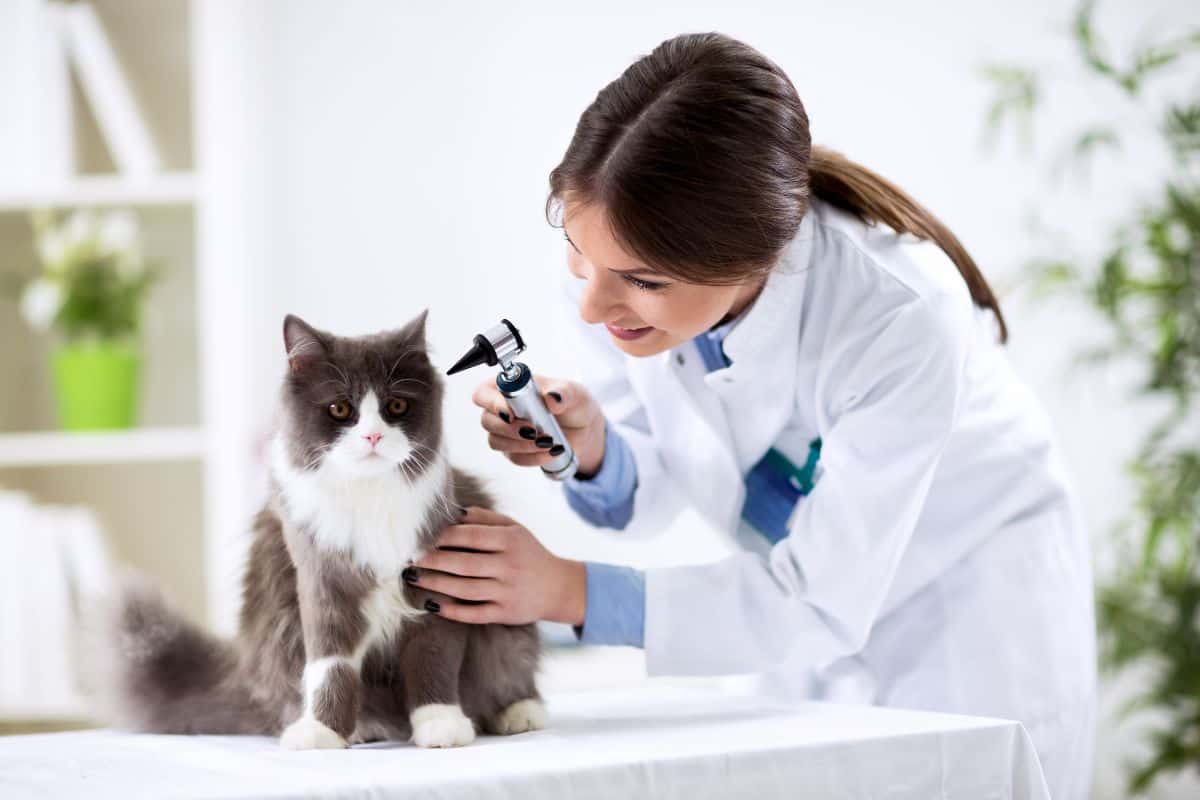What to Expect During Your See to Veterinarian Greensburg
What to Expect During Your See to Veterinarian Greensburg
Blog Article
Expert Tips for Animal Nourishment From a Vet
Recognizing the dietary requirements of animals is crucial for their overall health and wellness and long life. Vets advise a well balanced diet plan that caters to specific aspects such as age, activity, and breed degree. Yet, with the wide variety of family pet food options available, pet owners often discover themselves navigating a landscape rife with misinformation and myths. As we discover important pointers from veterinary specialists, it becomes noticeable that proper nourishment is not just concerning what is fed yet includes a deeper understanding of each pet dog's unique needs. What key understandings could transform your strategy to animal nourishment?
Understanding Nutritional Requirements
Recognizing the dietary needs of family pets is basic to guaranteeing their total wellness and well-being. Much like humans, pets need a well balanced diet regimen that provides vital nutrients, consisting of proteins, fats, vitamins, minerals, and carbohydrates. These nutrients play vital functions in various physical functions, such as power production, immune response, and tissue fixing.
Proteins are essential for growth, repair service, and maintenance of body tissues - Vet Mckinney. They are composed of amino acids, several of which are vital and need to be obtained from food. Fats provide a focused source of power and are critical for the absorption of fat-soluble vitamins. When they consist of fiber., carbohydrates offer as a key energy resource and can support digestion health and wellness.
Each animal might have one-of-a-kind needs based on variables such as age, breed, task level, and health and wellness status. It is vital to seek advice from with a veterinarian to establish the specific dietary needs tailored to your family pet's private needs, ensuring they receive optimal nourishment throughout their life stages.

Picking the Right Food
Choosing the ideal food for family pets is an essential element of fulfilling their nutritional needs. It is essential to consider aspects such as age, health, type, and dimension standing when selecting a family pet food. Kittycats and puppies need solutions that sustain growth and development, while adult pets require balanced diets that preserve their health and wellness. Senior pet dogs may take advantage of foods created to deal with age-related issues, such as joint health or weight monitoring.
When examining pet dog food options, try to find products that meet the Organization of American Feed Control Officials (AAFCO) standards, which make sure that the food supplies well balanced and total nourishment. Ingredients ought to be high-grade, with real meat as the primary source of healthy protein. Avoid foods with too much fillers, fabricated ingredients, or byproducts, as these can detract from the overall nutritional worth.
Consulting with a vet can offer tailored suggestions based on your family pet's certain needs. Furthermore, transitioning in between foods need to be done gradually to prevent intestinal trouble. By taking these steps, animal owners can guarantee that they are offering their furry companions with the very best possible nourishment for a healthy and balanced and delighted life.
Typical Misconceptions Concerning Family Pet Food
Disproving mistaken beliefs bordering pet food is essential for ensuring ideal nutrition for our hairy buddies. One widespread myth is that all grain-free diet regimens are premium for pet dogs.

Furthermore, many pet dog proprietors believe that "premium" or "all-natural" labels assure greater top quality. These terms are commonly uncontrolled and do not always suggest remarkable nutritional value. It is vital to inspect component checklists and dietary profiles rather.
Special Considerations for Various Breeds
When it pertains to pet nutrition, unique factors to consider need to be taken into consideration for different types, as each breed can have unique nutritional needs and level of sensitivities. Huge breeds such as Wonderful Danes and Saint Bernards are susceptible to musculoskeletal concerns and may profit from diet plans formulated to sustain joint health, usually featuring active ingredients like glucosamine and omega fatty acids. On the other hand, little types like Chihuahuas Recommended Site may need higher calorie densities to fulfill their energy levels, demanding formulations that are abundant in Get More Information nutrients but lower in mass.
Furthermore, particular breeds might be inclined to details health problems, such as food allergic reactions or level of sensitivities. Types like Labrador Retrievers may have a hard time with obesity, needing careful part control and a well balanced diet to keep a healthy and balanced weight. On the various other hand, breeds such as Dachshunds might be more prone to back concerns, triggering a demand for diet regimens that promote spine health and wellness and weight monitoring.
Ultimately, comprehending these breed-specific dietary demands is vital for pet dog proprietors. Consulting with a vet can help in selecting the most proper diet regimen customized to a specific pet's breed, health and wellness, and age status, guaranteeing ideal nourishment and wellness.
Value of Normal Vet Examinations
Recognizing the special nutritional requirements of various breeds is just one aspect of responsible animal ownership; regular vet check-ups play an essential duty in keeping total wellness. These examinations are necessary for very early detection of health issues, ensuring that any kind of possible issues are attended to before they become significant. Regular gos to allow vets to monitor your pet's weight, oral wellness, and crucial indications, which are vital signs of overall health.
Additionally, routine exams allow veterinarians to give customized nutritional suggestions based on your family pet's specific health and wellness status - Vet Greensburg. As pets age, their nutritional requirements might view change, and changes may be essential to stop weight problems or nutrient deficiencies. Preventative care, consisting of vaccinations and parasite control, is likewise a fundamental element of these gos to, guarding your animal from numerous diseases
In enhancement to health examinations, these appointments use an outstanding possibility for pet proprietors to review behavioral adjustments or concerns regarding their pet's eating routines. By prioritizing normal veterinary examinations, pet dog owners can guarantee a much longer, much healthier life for their furry buddies, inevitably boosting their lifestyle.
Final Thought
In verdict, ensuring ideal family pet nourishment calls for a comprehensive understanding of private nutritional demands, ideal food selection, and awareness of common misconceptions. Unique considerations for different types have to be made up, and normal vet check-ups play an important function in checking wellness and nutritional changes. Sticking to AAFCO criteria and speaking with vets before making nutritional adjustments will certainly boost the health of pet dogs, inevitably adding to their long life and lifestyle.
With the plethora of animal food alternatives readily available, pet proprietors usually locate themselves browsing a landscape swarming with misinformation and myths. Each animal may have one-of-a-kind demands based on variables such as age, type, activity level, and health standing. It is crucial to take into consideration aspects such as age, dimension, wellness, and breed condition when selecting a pet food. Elderly animals may benefit from foods designed to resolve age-related problems, such as joint health or weight monitoring.
Recognizing the distinct nutritional requirements of different types is just one element of responsible pet dog ownership; normal veterinary check-ups play an essential role in keeping general wellness.
Report this page